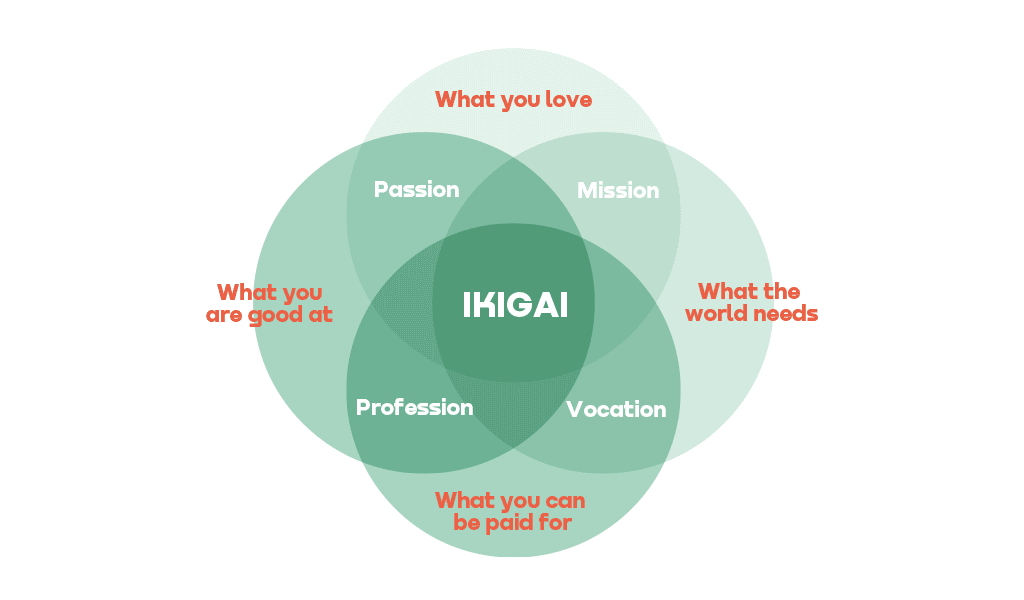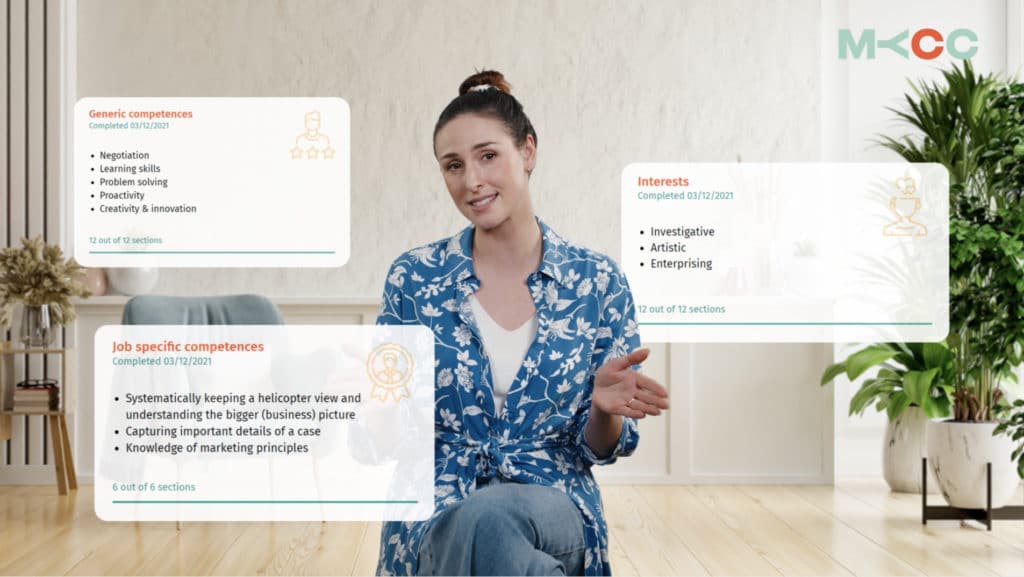In the previous part we described how “meaningfulness” has become the barometer for the happiness at work that someone experiences today. That not only the young generation is looking for more meaning in their job, but that this search has become an item among employees of all ages. But what exactly is that meaning? And how do I find out what meaning exactly means to me?
Meaning. It feels like an elusive word. Woolly and abstract. In the Van Dale we find as definition: ‘searching/finding the purpose or significance of something’. But what does that meaning mean for jobs and companies?
Meaning in companies/jobs.
Doctors save lives, employees of The Ocean Clean-up are cleaning the oceans of plastic. Meaningful, right? But does a job need to have a social impact in order to lead to meaning? Rest assured, we’re not going to ask you to change your organization’s business model so that your activities start tomorrow to help save the planet.

According to a well-known Japanese model (fig. 1), the key to happiness in your professional life lies at the intersection of 4 domains. The intersection between what you are good at, what you love to do, what the world needs and what you can be paid for. They call that intersection ikigai.
We want to nuance that a bit. For us, finding meaning in your job is primarily about being able to offer added value. It certainly doesn’t have to be on a planetary level, as many articles would have us believe today. But it is about making a difference for someone: a colleague, a customer, an organization, a family member, yourself, ..
In our last part of this trilogy ‘Meaning as a way of binding employees to your organization’ we will give you the tools to take this into account as an HR professional in the existing organization and jobs.
Meaning is personal: not ‘why’ but ‘who’.
Meaningfulness is about finding an answer to the ‘why question’. Why do we live? So in this case: why do we work? We can think of many reasons why we work. Not for everyone, the answer to that question will be “making a difference to others”. For some, earning money will be more important, still others seek self-development or socializing with colleagues.
What exactly contributes to the feeling of a meaningful job is different for each individual. The question should therefore not be ‘why do I work’, but rather ‘who am I’ and ‘what is important to me in life’. In that sense, a meaningful job is not something that can be created by an employer alone, but is created by listening to what the employee finds meaningful (in life).

Start with career drivers
The ‘who am I’ and ‘what is important to me in life’ brings us to the intrinsic and extrinsic motivators of a job. In other words, the career drivers.
What gives you that feeling of “mattering”? Is that more responsibility, or just going all the way within your field of expertise? Is that about earning a lot of money or doing what you love to do? Mapping out the career drivers of your employees should therefore be the number 1 action point for you as an HR professional who strives for ‘meaning in the job’.
It is based on those career drivers that you gain insight into how you can give your employees the feeling that they matter. After all, the career drivers also say a lot about what type of working environment (read: culture) makes your employee happy.
In the last part of our trilogy about meaning, we tell you how to get started.
The HR-professional as a guide
More and more companies are facing difficulties on how they can get more meaning in their jobs. How they can make people experience that sense of self-esteem within the functions available today.
You can read about how to get started with this in the last part of our trilogy.